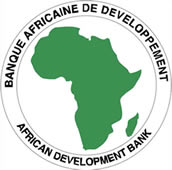 Private Enterprise Federation
Advocacy, Business Development and Market Access
Private Enterprise Federation
Advocacy, Business Development and Market Access
Advocacy, Business Development and Market Access
The Private Enterprise Federation
Ghana’s oil and gas prospects are significant. It is believed that Ghana’s oil and gas resources stretches across the country’s shoreline from the west (Cape Three Points) to the east (Keta). Similarly, the Voltaian Basin, which covers over 40 percent of the country’s land mass, is believed to have oil and gas reserves. This Voltaian Basin is yet to be fully explored and will be given priority attention during the medium period. The draft Bill to regulate the upstream petroleum industry is being reviewed with the view to reducing redundancies and further giving effect to the intention to consolidate the activities of the numerous regulatory agencies existing in the energy sector. It is believed that a smaller number of regulatory agencies is needed to manage the sector in order to ensure efficient and coordinated operation and enforcement of regulations.
This Report is in response to an invitation from the Private Enterprise Foundation, PEF, to submit a technical proposal to provide consulting services for the study on the Impact of Power Outages on Manufacturing Industries in Ghana. This assignment was undertaken as part of PEF's key strategic objective to maintain a close relationship with private sector business organizations and as a lead organization that plays an advocacy role in influencing policies and regulations of government.
As an umbrella private sector business association charged with the responsibility of private sector business development in this country, the Private Enterprise Foundation (PEF) is concerne9 about the low patronage of Made-in-Ghana goods. There seems to be an unexplained preference for foreign goods, as opposed to locally manufactured goods. Such consumer attitudes impact negatively on the growth of local industries and the situation
The Ghanaian real estate market has seen significant expansion due to the rapid growth of the Ghanaian economy and the influx of foreign investors into the country. Demand for various types of properties is on the increase and there are high prospects for companies already operating in the industry as well as those seeking to enter the industry. Immense opportunities exist in the construction of residential houses, industrial and commercial houses as well as shopping centres, hotels, and hostels for tertiary institutions.
The hospitality industry is a broad category of fields within the service industry that includes lodging, event planning, theme parks, transportation, cruise line, and additional fields within the tourism industry. The hospitality industry is a multibillion-dollar industry that depends on the availability of leisure time and disposable income. A hospitality unit such as a restaurant, hotel, or an amusement park consists of multiple groups such as facility maintenance and direct operations (servers, housekeepers, porters, kitchen workers, bartenders, management, marketing, and human resources etc.) Tourism on the other hand is travel for pleasure; also the theory and practice of touring, the business of attracting, accommodating, and entertaining tourists, and the business of operating tours. Tourism may be international, or within the traveler's country.
Ghana's utilities sector includes the Water, Sanitation and Electricity Sectors. Ghana water sector is segmented into two parts and are identified as the Urban Water sector and Community Water sector. The Urban Water sector comprises about 87 cities and towns where the national water utility- the Ghana Water Company Limited (GWCL) owns and manages water supply. The sector is under the dual authority of the Ministry of Water Resources, Works and Housing (MWRWH) and of the Ministry of Local Government, Rural Development and Environment (MLGRDE).
Ghanaian timber is highly valued for its durability and aesthetic appearance. It is used in the manufacture of products such as floorings, furniture, carvings, toys, Mouldings, rafters, sea defense walls, wall cladding piers, and railway sleepers, among other items.
The ICT Industry comprises telecommunications operators, internet service providers, VSAT data operators, software manufacturers, broadcast institutions, ICT education providers, internet cafés, etc. Generally, the Ministry of Communications and the National Communications Authority (NCA) oversee activities in the sector. They have established the necessary legal and regulatory framework which guarantees the safety of investments in the ICT industry Accra lies at the heart of the ICT industry as it hosts the headquarters and branches of many ICT companies as well as associated infrastructure and support companies.
Introduction
The Private Sector is that part of an economy that is neither owned nor controlled by the state or Government but, is run, by individuals (Investopedia, 2016). The private sector therefore encompasses all profit making businesses and, to stretch the definition, all not-for-profit and charitable entities which, like the private sector, is not owned or controlled by the Government, formally known as the Voluntary sector.
The process of acquiring licenses and permits for business operations are key determinant of private sector development and economic growth and for that matter, the nature and mode of implementation of these licenses and permits have great effects on the private sector. Any delays caused in acquiring these licenses and permits add to the cost of doing business.



































